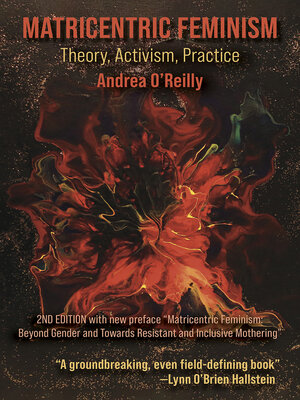
Sign up to save your library
With an OverDrive account, you can save your favorite libraries for at-a-glance information about availability. Find out more about OverDrive accounts.
Find this title in Libby, the library reading app by OverDrive.



Search for a digital library with this title
Title found at these libraries:
| Loading... |
The new preface to the 2nd edition,"Matricentric Feminism: Beyond Gender and Towards Resistant and Inclusive Mothering," explores four central concerns of matricentric feminism: the specific political import and intent of racialized women's motherwork, the radical queering of empowered mothering, the real and prevalent oppressions of motherwork, and the foregrounding of mothers and mothering in feminism. In these discussions, the prefaces considers how matricentric feminism in positioning mothering as a verb affords a gender-neutral understanding of motherwork and allows for an appreciation of how motherwork is deeply gendered and how this may be challenged and changed through empowered mothering The book argues that the category of mother is distinct from the category of woman, and that many of the problems mothers face—social, economic, political, cultural, psychological, and so forth—are specific to women's role and identity as mothers. Indeed, mothers are oppressed under patriarchy as women and as mothers. Consequently, mothers need a feminism of their own, one that positions mothers' concerns as the starting point for a theory and politic of empowerment. O'Reilly terms this new mode of feminism matricentic feminism and the book explores how it is represented and experienced in theory, activism, and practice. The chapter on maternal theory examines the central theoretical concepts of maternal scholarship while the chapter on activism considers the twenty-first century motherhood movement. Feminist mothering is likewise examined as the specific practice of matricentric feminism and this chapter discusses various theories and strategies on and for maternal empowerment. Matricentric feminism is also examined in relation to the larger field of academic feminism; here O'Reilly persuasively shows how matricentric feminism has been marginalized in academic feminism and considers the reasons for such exclusion and how such may be challenged and changed.






